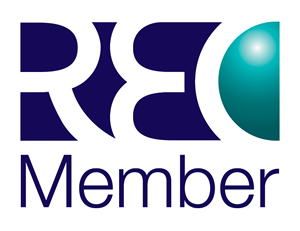Exit interviews: Why they matter more than you think
An exit interview might feel like the end of the road but for smart employers, it’s a chance to learn, to improve and to turn a resignation into something more meaningful than just a handover and a farewell lunch. When done well, exit interviews offer valuable insights into how your business is really experienced, beyond engagement surveys or quarterly reviews. In today’s market, where retaining great people is more important than ever, that kind of insight is gold.
Too often, exit interviews are rushed or treated like a tick-box exercise. A polite chat, a few generic questions and little follow-up. But when they’re approached with curiosity and care, they can uncover the real reasons people leave and more importantly, what might have made them stay. Because here’s the reality: most people don’t leave over a single issue. It’s usually a build-up of things like, lack of development, poor management, unclear progression, pay that doesn’t reflect responsibility. The exit interview is your chance to understand that build-up and spot the patterns across the business.
The benefits of listening
Great exit interviews can:
- Highlight recurring management issues that might not show up in formal feedback.
- Identify culture gaps between how you think your business operates and how it really feels to be part of it.
- Spot opportunities to improve retention, by showing what high-performers valued and what pushed them away.
- Strengthen your employer brand, by showing people that their voice matters, even as they leave.
Exit interviews are also a moment to leave the door open. Not every leaver is gone forever and if someone feels heard and respected at the end of their journey, they’re far more likely to return down the line or recommend you to others.
People are more likely to speak openly if they trust the process. That means making it clear that their feedback is valued and won’t be held against them. It also means offering a neutral space to talk (sometimes an external interviewer or HR partner works best). And finally doing something with insight. Because nothing shuts down future honesty like giving feedback that disappears into a void.
We often hear candidates talk about their previous exit interviews. The ones that stand out were where someone genuinely listened, where a manager followed up and where their insight made a difference. That’s the kind of experience that builds a reputation and shows you value people, even at the point of goodbye.
Who should conduct the exit interview?
It’s worth considering who leads the conversation in an exit interview. In most cases, it shouldn’t be the employee’s direct line manager, especially if management style or team dynamics played a role in their decision to leave. A neutral party, like someone from HR or a senior leader not directly involved in their day-to-day, creates a safer space for openness. Some organisations even use an external partner for exit interviews to encourage honesty and ensure feedback is gathered objectively. If you want honest answers, make it easy and safe for people to share them.
Exit interviews don’t need to be complicated. A simple, thoughtful conversation is enough provided it’s approached with openness and a genuine desire to learn. Because while no business can stop all turnover, every business can learn from it and when you treat departures as an opportunity for insight, you give yourself a better chance of keeping your next great hire.


